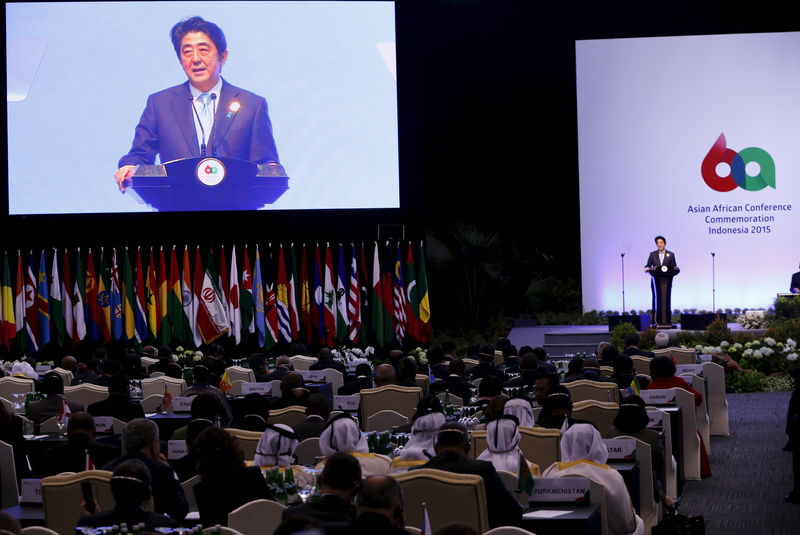TOKYO (Reuters) - Japan's government has proposed making nuclear energy account for between 20 and 22 percent of the country's electricity mix by 2030, with renewable energy to account for slightly more, media reported on Friday.
The proposal on nuclear energy, if adopted, is likely to be unpopular among a public that opinion polls show has been consistently opposed to atomic energy since three meltdowns at the Fukushima Daiichi plant north of Tokyo in 2011.
It will, however, mark a shift away from nuclear power, which contributed to about 30 percent of Japan's electricity supply before the world's worst nuclear disaster since Chernobyl in 1986.
All of Japan's reactors remain closed pending safety checks by a new regulator set up after the Fukushima crisis highlighted cosy links between industry and those meant to monitor safety at the country's nuclear plants along with lax regard for rules.
Japan's government has proposed making renewable energy account for between 22 and 24 percent of electricity output from nearly 11 percent in the year through March 2014, the Yomiuri newspaper and other media reported, without citing sources.
Natural gas, shipped to Japan in superchilled liquid form, should account for 27 percent of power production, from 43.2 percent, while the ratio for crude and fuel oil was set at 3 percent, down from 14.9 percent, the paper said.
The government is proposing making coal account for 26 percent of electricity production, compared with 30.3 percent now, the Yomiuri said.
Japan has ramped up coal use to record levels since the nuclear shutdown, setting it at odds with countries including Britain and the United States and pushing carbon emissions higher.
The Ministry of Economy, Trade and Industry, which oversees the power sector, has been holding panel meetings on the energy mix since January.
The person in charge of the ministry's general policy division was not immediately available to comment, an official told Reuters by phone.

Two nuclear plants have cleared the main safety hurdle for restarts, but in the last two weeks courts have stepped in, preventing one of them from restarting and allowing the other to go ahead, complicating the return to nuclear.